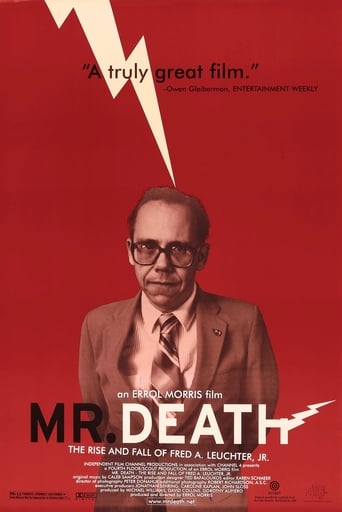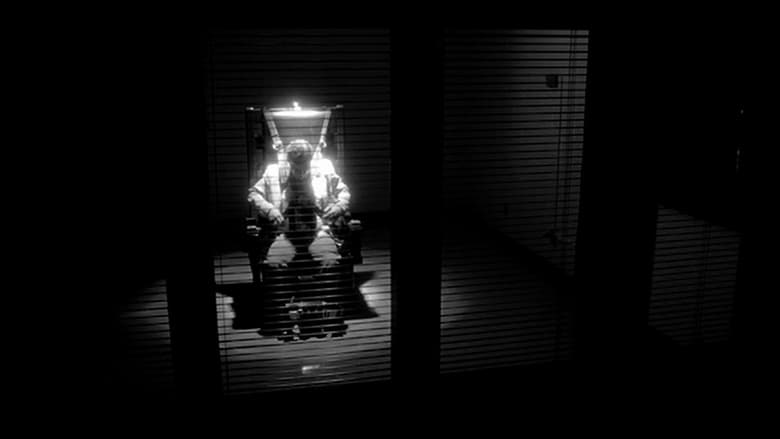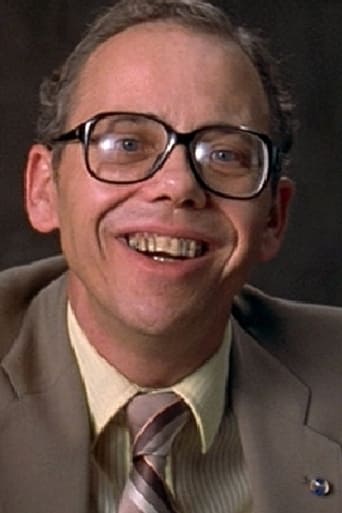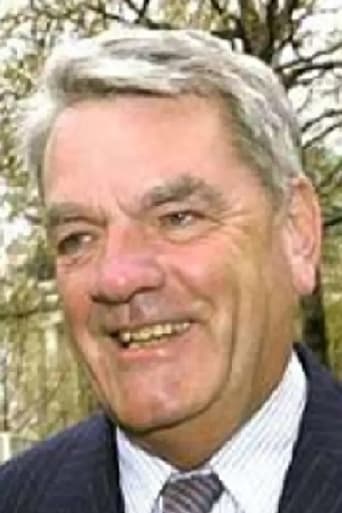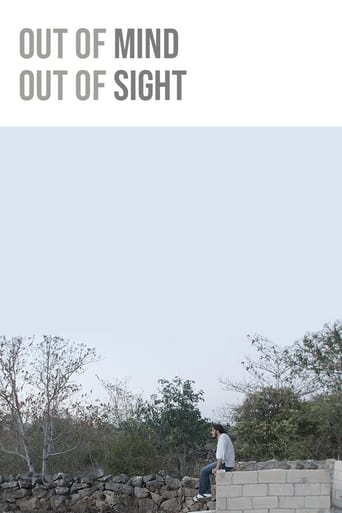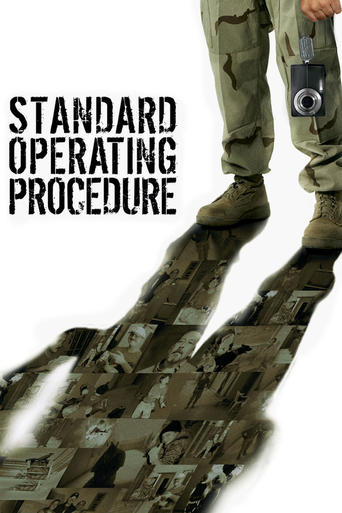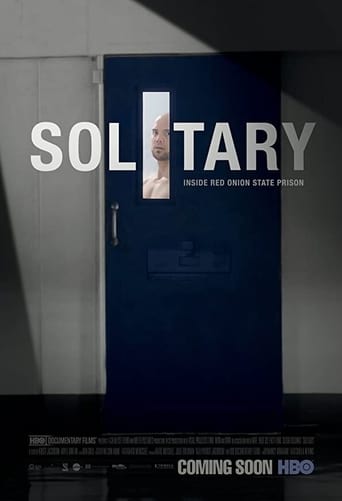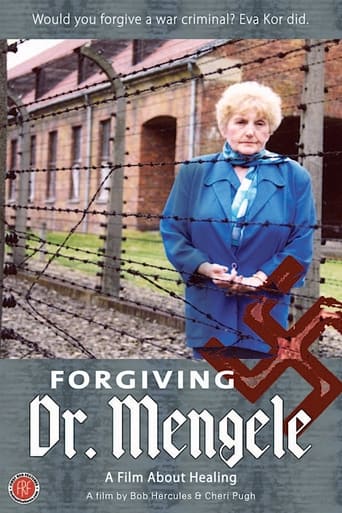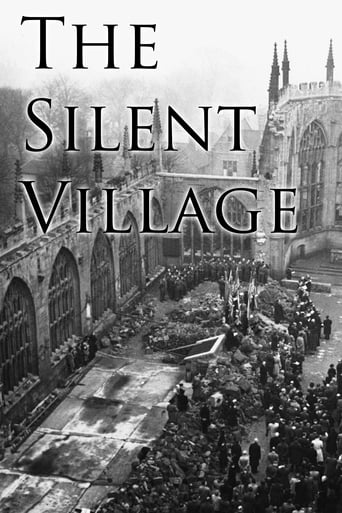Mr. Death: The Rise and Fall of Fred A. Leuchter, Jr. (1999)
A portrait of the life and career of the infamous American execution device designer Fred A. Leuchter, Jr. Mr. Leuchter was an engineer who became an expert on execution devices and was later hired by holocaust revisionist historian Ernst Zundel to "prove" that there were no gas chambers at Auschwitz. Leuchter published a controversial report confirming Zundel's position, which ultimately ruined his own career. Most of the footage is of Leuchter, working in and around execution facilities or chipping away at the walls of Auschwitz, but Morris also interviews various historians, associates, and neighbors.
Watch Trailer
Cast
Similar titles
Reviews
Powerful
It is a performances centric movie
The film's masterful storytelling did its job. The message was clear. No need to overdo.
Unshakable, witty and deeply felt, the film will be paying emotional dividends for a long, long time.
Here's the major lie by omission - the film and interview of the chemist conveniently excludes the fact that Leuchter also took brick samples from the delousing chambers at the camps in the exact same way as he did from the alleged homicidal gas chambers. His delousing chamber samples registered extremely high amounts of cyanide, proving that the cyanide is in fact easily detectable, even when diluted due to the crushing of large samples.Further, the archives were misrepresented as evidence. The items claimed as evidence were normally ordered and used in all camps in the delousing chambers, even the dozens of camps in Germany which have since been proved to have never had any homicidal gas chambers at all. The homicidal gas chamber lie originally included camps in Germany and several other occupied countries, but over time as more research has been completed, claims of homicidal gas chambers have been dis-proved in nearly all camps except for the remaining few in Soviet captured Poland that Leuchter tested. See the controversy about Leuchter? With his testing, the last bit of the homicidal gas chamber lie is laid to rest. That embarrasses many people. The documents in the archive are nothing but evidence of materials for normal delousing chambers that were used in all camps to actually keep prisoners alive by treating clothing and buildings to eliminate Typhus carrying lice - the real killer in the camps. Many thousands continued to die of Typhus even after the camps were liberated. The film goes further in deceiving people by claiming that "Vergasungskeller" used in the archives is evidence of homicidal gas chambers, since it means gasification chamber, but this is actually what the delousing chambers were referred to. Homicidal chambers would be called "Gaskammer."For those more knowledgeable about the actual lack of evidence, it's clear this film was made for one reason; to attack Fred A. Leuchter because he's a threat to the homicidal gas chamber lie being dis-proved in the last few camps. The film relies on opinionated slander from Holocaust Museum employees calling Leuchter names like, "Neo-Nazi," lying through omission and distortion of evidence, clips of Hitler mixed in to stir emotion, and even weird camera angles, dark lighting, and odd music all in an attempt to attack Mr. Leuchter.One positive about the film is that it probably backfires on some, stirring their interest to do actual research into the subject. However, because the film is clearly designed to protect a lie and slander someone, I cannot give it more than one star. Lies and slander about such an important subject are unacceptable.If you want to see a good film watch David Cole's actual tour and interview of the curator of the main Auschwitz camp. The curator admits there were no homicidal gas chambers found after the war. Obviously, the Soviets created them out of regular buildings in order to fabricate evidence to match the war propaganda they had spread. David Cole is a Jew by the way, and his film is called David Cole Interviews Dr. Franciszek Piper.We've all been told a tremendous lie. There never were any homicidal gas chambers.
Fred A. Leuchter, Jr., the subject of this documentary, is a lonely man, and so a man of narrow acumen, because he's just appreciative to be liked, even by Nazi sympathizers. Errol Morris conjoins montages and music into a movie that is more reflection than subjective report. Fred Leuchter, the son of a prison warden, relatively floundered into the Death Row business. An engineer by training, he was inspired by the urge for more competent and compassionate execution apparatuses. He'd seen electric chairs that fried their sufferers without killing them, poison gas chambers that endangered the witnesses, gallows not efficiently constructed to break the neck. He went to work fashioning better versions of these devices, and soon prisons throughout the US were taking his council.Notwithstanding his advance in trade, he was not, we understand, particularly well-received socially, though he does come to marry a waitress he meets owing to his habit of more than forty cups of coffee a day. We hear her offscreen voice as she balks at Fred's belief that their trip to Auschwitz was their honeymoon, where she had to wait in a freezing car, looking out for guards. Leuchter's visit to Auschwitz was the crossroads in his work. He was asked by a neo-Nazi Holocaust denier to provide a professional opinion at his trial. Zundel financed Leuchter's 1988 trip, where he chiseled off chunks of brick and mortar in buildings used as gas chambers and had them examined for leftover cyanide. He resolves that the chambers never had capacity for gas.There is a fault in his report, needless to say. The lab technician who analyzed the samples for him protests that cyanide would sink into bricks but to the measure of one-tenth of a hair. By chiseling large bits, Leuchter had eroded his sampling by several thousand times, not even taking into account the ravages of half a century. To find cyanide would have been supernatural. No bother. Leuchter became a darling after-dinner mouthpiece in the neo-Nazi circle, and the camera captures how his face illuminates and his whole body appears to embrace their cheers and ovations, how thrilled he is to shake hands with his new friends. Other people might recoil from the derelict position of a Holocaust denier, to say the least. An executioner is a derelict anyway and finds his friends where he can.No filmmaker can be accountable for those reluctant or unfit to take in his or her film with a discerning view. Anyone who leaves this deeply unsettling film concurring with Leuchter lays claim with him on the verge of psychosis. What's unsettling about the film is the way Leuchter is fairly honorable up till the point at which the neo-Nazis sink their talons into him. Those who are revolted by ethnic cleansing and other forms of government-sponsored genocide sometimes have no pangs when the state executes them one by one, testing them on elephants as is appallingly shown early in this film through dog-eared stock footage. One can even be a two-term president after governing the most restless American Death Row on record.In cinema, the Holocaust intensifies melodrama in that the conquest of the soul never struck so victorious against atrocity, because the atrocity is so confounding. Morris's haunting documentary tries to do something distinct. It's to attempt to penetrate the thought process of denial. You meditate on the general concept of denial, not as some postwar sensation but as something that was intrinsic in the undertaking itself. Those people did those things. The mystery is how. It's about deciphering why Fred Leuchter holds these beliefs.There is paradox in of so many U.S. states heaping tax money on this guy's work, just to oust him because of his distasteful affiliations. The capability of so many people to live contentedly with the notion of capital punishment may be a hint to how so many Europeans could live with the Holocaust: When you swallow the idea that the state has the right to kill someone and the right to decide what is a cardinal wrongdoing, you're nearly there. Mr. Death offers no complacent position of judgment. He doesn't make it obvious for us with light ethical categorizations, because people are formidably paradoxical and can get their minds around fearsomely peculiar notions.
In recent months, I've really grown to love documentaries--having seen some truly exceptional ones. As a psychology teacher, these sort of films make great fodder for discussions with my students. I haven't shown them MR. DEATH, but might consider doing so in the future since the main character is so bizarre and difficult to comprehend.The film is unusual in that the first third of the film is amazingly different than the rest of the film. It seemed as if the man who was the focus of the film (Fred Leuchter) was an entirely different person in the final 2/3 of the movie. This was very clever film making--throwing the audience a curve-ball, so to speak. As a result, the audience which initially probably felt somewhat sympathetic towards this very odd man, are now transformed into charter members of the "I hate Fred Club"! As the film begins, you'll notice that there is no traditional voice-over narration--instead, Fred and a variety of others talk on camera as narration. It seems that Fred has become a bit of an authority on how to humanely execute criminals (an interesting oxymoron). Oddly, while he has some advanced training and is obviously very bright, he seems way overconfident in himself and his abilities. He also seemed quite ghoulish in his excitement about his trade (building and remodeling all types of death equipment), but on the other he also seems pretty decent as he talks about how its wrong to make people feel pain or make the executions too grisly. He felt his job was a positive thing in order to make the execution as easy on the recipient as possible. While this may or may not have been the purpose of the film, the overall message did a lot to make me think twice about the death penalty--especially when he talked about how messy and disgusting the process actually was. Television and movie portrayals are WAY too sanitized and hearing Fred talk about the process is very disturbing.Then, almost completely out of the blue, the film discusses Fred's involvement in a court battle in Canada concerning "hate speech". A holocaust denier was going on trial for publishing booklets saying that there wasn't any widespread killing of Jews by the Nazis. Fred was hired as an "expert witness" to testify for the defense even though he really didn't have formal training in executions or mass exterminations (it was more a hobby or he was a semi-pro in the field). The film then follows him to Auschwitz as he illegally takes samples to prove that no gassings occurred there. While Fred seems very confident of his methodology, the film makers later reveal that in many ways he had no idea what he was talking about nor did he know how to take proper samples.The sad part about the film is not just how he was used by the neo-Nazis but how Fred was so dogmatic and narcissistic that he could not allow himself to question his methodology or objectivity. As a result, Fred's life was destroyed and at the same time, he became a celebrity, of sorts, on the neo-Nazi talk circuit. So on one hand, he's lost his job,wife and home, he's hated by practically everyone---and on the other, he's the darling of pinheads all over the world! By the end of the film, Fred is as dogmatic as ever--even as his life goes down in flames! As far as how the film was constructed, it was excellent. Fortunately for the film maker (Errol Morris), there was film of a young Fred cavorting about prisons with his father (who worked there) and when sampling the death camp for evidence of cyanide, there was also a film crew of his own documenting the process. Morris was able to integrate these into present day video to produce an intriguing but highly confusing and disturbing film. While this film is definitely not for everyone, those who have a high tolerance for the weird and a desire to learn about odd personalities are strongly encouraged to give this one a try. Just be prepared to feel that Fred is quite the enigma and answers won't be very easy to find. Also be prepared to both hate the man and yet feel a tad sorry for him at the same time--a truly odd and jarring experience for me.For more information about Fred, try the following link (http://en.wikipedia.org/wiki/Fred_A._Leuchter). Unlike some Wikipedia articles, this one seems rather sound--with decent documentation. I particularly was surprised to see that Fred was not even an engineer but had a BA in history and he was definitely practicing as a trained engineer!! Even the Errol Morris documentary didn't catch that!
Leuchter is one amazing guy. This is a guy who became one of the US's foremost experts on death engineering - he designed and built/rebuilt several execution devices for death rows throughout the nation. Then, tragically, he took it upon himself to travel to Auschwitz and hammer bits off the gas chambers to bring home for cyanide testing. His conclusion: no-one was gassed there. Oops. Then he compounded his mistake by testifying for Ernst Zundel and speaking at holocaust-revisionist meets throughout the world.So, an excellent subject for a movie, and Morris does an okay job. There are a few faults. The quality of some of the interview footage is quite poor. And there is the question of the reconstructions. Leuchter provided Morris with plenty of "home movies" which are incorporated into the film, so the function of the reconstructions seems merely to be to reinforce in our minds the dramatic qualities of a lot of the actions Leuchter performed. Personally, I could've done without them.10/10 for the subject, 6/10 for the film-making, gives 8/10 overall.
